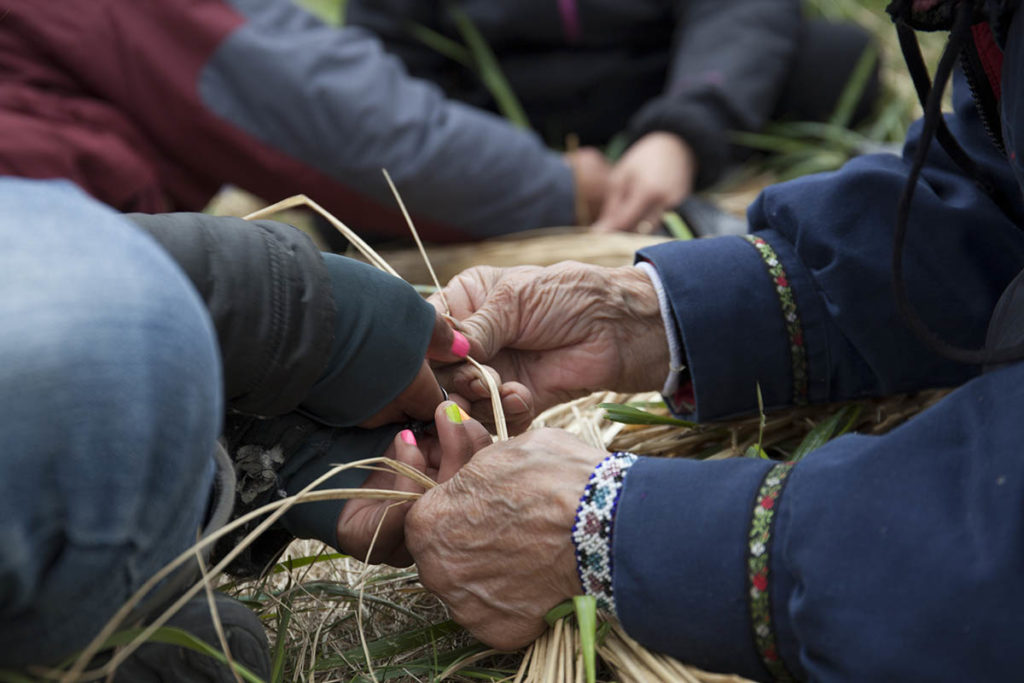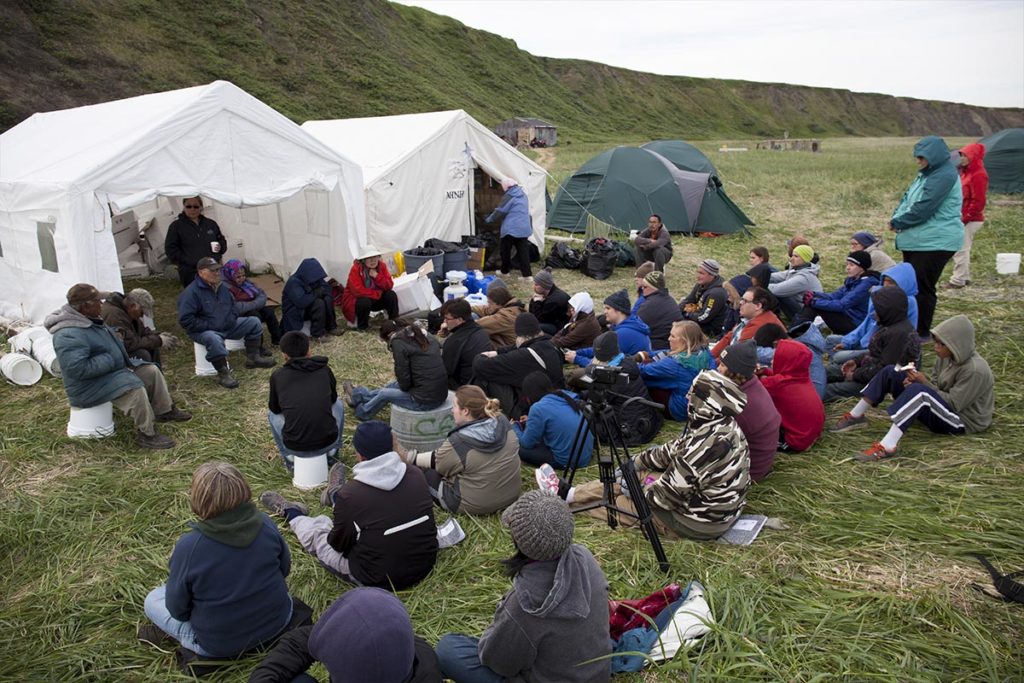Welcome to the electronic version of Storyknife articles.
Preserving Our Culture
Calista Culture Camps
Storyknife, October/November 2018 edition
Culture Camps are open for registration to Youth In-Region! Umkumiut (June 11-17, 2019), Eek River (July 9-15, 2019), and Scammon Bay (Kun River) (July 23-29, 2019). APPLICATION DEADLINE: March 8, 2019.
The most important aspect to culture and our traditional way of life is passing it on to the younger generation. Calista Education and Culture, Inc. (CEC) culture camps in the Yukon-Kuskokwim Delta have been offered annually to youth since 2000.
CEC is Calista Corporation’s nonprofit. CEC manages the scholarship program, cultural preservation programs, publishes books, published a traditional names map, and more.
“It was a way of life for our ancestors,” says Mark John, CEC Cultural Advisor. “They got food, clothing and materials for shelter like sinew for twine and other tools by living off the land.”
Village Elders participate with youth from surrounding villages in a setting outside the village, similar to a traditional fish camp. Middle school youth in 7th and 8th grades learn Yup’ik and Cup’ik cultural skills, values and history.
“We spoke with Elders in the villages. They really wanted a chance like this to pass on traditions to the youth, as they learned from their fathers and mothers, and Elders in their villages,” says Mark.
Subsistence hunting, fishing and harvesting activities are the focus of the camp. Our values as Yup’ik and Cup’ik people are passed down to the next generation. This type of curriculum is known as “Yuuyaraq,” or our Yup’ik way of being. Morning sessions would be set up like a classroom, working on Yup’ik pronunciation and understanding of subsistence activities from hunting to net mending.
“Traditionally, the communities were like family. They took care of each other. They had to, in order to survive.” Mark says.
Additionally, culture camp is an opportunity for first-year teachers in the school district area to get to know the culture and meet Elders and youth from that area.
“The Alaska Humanities Forum has attributed teacher participation to higher retention rates in the villages. First-year teachers gain a better understanding of village life when they participate as a teacher in the culture camps,” says Dale Smith, CEC Project Director.
Elders in our villages serve in their traditional role as the teachers and mentors of our Native values and life skills. The students and teachers are their students in this culture-based learning experience.
“I’ve always been amazed how quickly the kids calm down with the direction of the elders,” Mark says.
By participating in a CEC culture camp, youth become stewards to their communities and the environment by learning to respect it. Culture camp is typically 10 days in length. Depending on its location, camps are offered to about 15 youth from that particular area. CEC held culture camps outside of Toksook Bay, St. Mary’s and Akiak this year.
“Our grandparents were our teachers,” Mark says. “When you give Elders the opportunity to step into their traditional role as teachers, they will take on the role as they did centuries ago.”
See Future Calista Education Culture Camps

